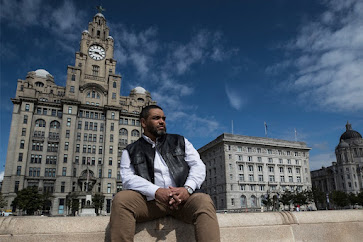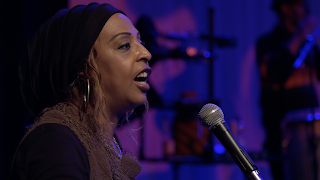Malik Al Nasir discusses £100m pledge by the Church of England Comissioners due to its involvement in "African chattel enslavement."
Malik Al Nasir appeared on BBC News to discuss the issue of reparations for investments made by the Church of England in companies that enslaved Africans and trafficked them to the America’s Europe and Asia.
This was in light of the Church of Englands announcement of a “£100m investment fund” to begin the process of truth telling, healing and reparative justice.
An independent panel of experts reported back to the Church following a consultation process with affected communities in the UK, the Carribean and Africa and stated that the fund should be increased to £1bn. I discuss with the BBC the implications of these measures and the lack of a statutory mechanism for bringing reparations claims and determining quantum.
————————
Based upon a press release by the Church of England. 4th March 2024.
CHURCH INVESTMENT FUND TO RIGHT WRONGS OF SLAVERY LINKS 'TOO SMALL AND TOO SLOW'
By Aine Fox, PA Social Affairs Correspondent
A £100 million investment fund set up to address the Church of England's links to transatlantic slavery is too small and slow, according to a new report which calls for a target of £1 billion.
The funding programme was announced in January last year for investment, research and engagement to "address past wrongs".
But its original nine-year timeframe has been judged too long by an independent oversight group which also stated that £100 million is "insufficient" to counter the "historic and enduring greed, cynicism and hate with penitence, hope and love".
It said: "The sum of £100 million is very small compared to the scale of racial disadvantage originating in African chattel enslavement."
The group said the Church Commissioners had "embraced a target of £1bn for a broader healing, repair and justice initiative with the fund at its centre".
The fund - which they said should be known as the Fund For Healing, Repair And Justice - will invest in members of disadvantaged black communities, aiming to "back their most brilliant social entrepreneurs, educators, healthcare givers, asset managers and historians".
While there will be grants for non-profit investments "to promote and enhance healthy lives, thriving minds and cultural impact", there will not be cash compensation for individuals or grants to government bodies, the group added.
The Church Commissioners will disburse the £100 million over five years, rather than nine as originally planned, the report said. “The £1 billion target can be met through a larger allocation from the Church Commissioners as well as through third-party funds, the group said.”
The announcement of the fund last year was a specific response to what the group described as a "historic pool of capital tainted by its involvement in African chattel enslavement".
Known as Queen Anne's Bounty - a fund used to supplement the income of poor clergy, it invested significantly in the South Sea Company, which traded in slaves in the 18th century.
The fund also received numerous donations, many of which the church has said were likely to have come from people linked to, or who profited from, slavery and plantations.
Among a series of recommendations, the oversight group called on the Church Commissioners to separately fund research to uncover "the full picture" of the church's involvement in slavery and wealth generated from it, beyond Queen Anne's Bounty.
It also urged the church to "apologise publicly for denying that black Africans are made in the image of God and for seeking to destroy diverse African traditional religious belief systems".
Rosemarie Mallett, Bishop of Croydon and chairwoman of the oversight group, said she hopes the investment fund can be "a catalyst to encourage other institutions to investigate their past and make a better future for impacted communities".
She said: "No amount of money can fully atone for or fully redress the centuries-long impact of African chattel enslavement, the effects of which are still felt around the world today.
"But implementing the recommendations will show the commitment of the Church Commissioners to supporting the process of healing, repair and justice for all of those across society impacted by the legacy of African chattel enslavement."
She said the legacy of slavery "continues to have a significant impact on communities today and inequalities persist till this day" in the form of pregnancy and childbirth outcomes, life chances at birth, physical and mental health, education, employment, income, property and the criminal justice system."
Archbishop of Canterbury Justin Welby said: "In seeking justice for all, we must continue to work together remembering that all are created in the image of God.
"The oversight group's independent work with the Church Commissioners is the beginning of a multi-generational response to the appalling evil of transatlantic chattel enslavement.
"My prayer is that this work will stimulate further visionary and practical co-created action."
Broadcast: 10:00am
4th March 2024
By BBC News.
























